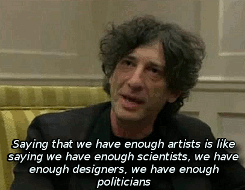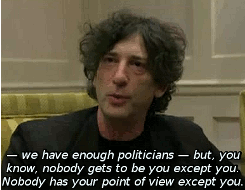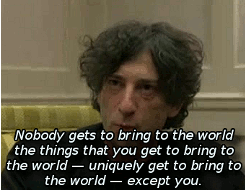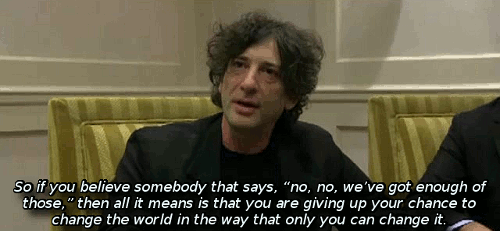Yall How Do I Eat In Another Kfc While Being Aware About This Knowledge
Yall how do I eat in another kfc while being aware about this knowledge
the story of kfc fucks me up man. the colonel founded this gas station that expanded to restaurant, the chicken at the restaurant gets popular, makes KFC, it gets big and he sells it to a corporation for a lot of money. realizes he got sorta scammed out of the true worth of kfc so tries to get more money and they refuse and the courts side against him. then he starts a new chicken restaurant claiming the corporate people were not making chicken to his standards and kfc sued him because kfc owned the colonel's likeness and the courts agreed. a corporation owned this man's name and appearance. he wasnt allowed to use either, thus legally erasing his reputation making it harder for him to get taken seriously in any food venture. the man, to the day he died, was going into kfc's and throwing fits because the food had fallen into such bad shape he hated it was associated with him. and it's like, whether he's a bad man or a good man or whatever, a corporation owned his identity, stopped him from using his reputation and identity in other businesses, and refused to acknowledge his outrage that they changed his recipes and still attributed it to him. this is literally the obnoxious plot of a jay and silent bob movie, but it was this dude's real life. what the fuck.
More Posts from Sumiresiel and Others
People often say LOTR is a story about hope. (I'm reminded of it because someone said it in the notes of my Faramir post.) And that's true, but it's not the whole picture: LOTR is in large part a story about having to go on in the absence of hope.
Frodo has lost hope, as well as the ability to access any positive emotion, by Return. He is already losing it in Towers: he keeps going through duty and determination and of course Sam's constant help.
For most of the story, Sam is fueled by hope, which is why it's such a huge moment when he finally lets go of the hope of surviving and returning home, and focuses on making it to the Mountain. To speed their way and lighten the load, he throws his beloved pots and pans into a pit, accepting that he will never cook, or eat, again.
When Eowyn kills the Witch King, she's beyond hope and seeking for a glorious death in battle. It's possible that in addition to her love and loyalty for Théoden, she's strengthened by her hopelessness, the fear of the Nazgúl cannot touch someone who's already past despair.
Faramir is his father's son, he doesn't have any more hope of Gondor's victory or survival than Denethor does, he says as much to Frodo. What hope have we? It is long since we had any hope. ... We are a failing people, a springless autumn. He knows he's fighting a losing war and it's killing him. When he rejects the ring, he doesn't do it in the hope that his people can survive without it, he has good reason to believe they cannot. He acts correctly in the absence of hope.
Of course LOTR has a (mostly) happy ending, all the unlikely hopes come true, the characters who have lost hope gain what they didn't even hope for, and everyone is rewarded for their bravery and goodness, so on some level the message is that hope was justified. But the book never chastises characters who lost hope, it was completely reasonable of them to do so. Despair pushed Théoden and Denethor into inaction, pushed Saruman into collaboration, but the characters who despaired and held up under the weight of despair are Tolkien's real heroes.
(In an early draft of Return, Frodo and Sam receive honorary titles in Noldorin: Endurance beyond Hope and Hope Unquenchable, respectively. Then he cut it, probably because it was stating the themes of the entire book way too obviously, because this is what Tolkien cared about, really: enduring beyond hope. Without hope.)
Also, people who know more than me about the concept of estel, feel free to @ me.
Okay so this is a big deal

To me, and to a significant subset of Sir Terry's fans (including most of you who've found this by the tags), his writing is serious commentary on the human condition - politics, prejudice, self-control, revenge vs. justice, religion, idealism, faith in people vs. cynicism, and more - dressed up with fantasy settings and a hefty leavening of humor to make it fun to read. And it is WILDLY fun to read, actual laugh-out-loud or at least a snicker averaging about every page.
But there's this common idea among the "important literature" people that fun and funny books are not also worthwhile or important in the same way.
This is a Discworld book being released WITH ACADEMIC COMMENTARY and AS A PENGUIN CLASSIC. That's a HUGE amount of recognition.
hey @pukicho i saw your art and i thought it was super cool! you improved so quickly (really impressive btw), and i was wondering what resources used to study art? and what app/website you digitally draw on? and your brushes if your okay with sharing them? and literally ANY other information you had because i would love to learn how to draw?
i feel like a victorian street rat asking for more bread
I use an XP-Pen Pen Tablet and Clip Studio Paint as my program of choice, but any pencil and notebook will suffice for learning, and may even be better. As for learning, I use books, baby!!! BOOKS! I'll even be nice and tell u which ones, because I am a lover of shared knowledge:
How To Draw by Scott Robtertson - deceptively complex book on perspective. It tells you how to draw a box, I then suggest you draw a fuck-load of boxes in correct perspective before moving forward. Having a strong grasp on planes and perspective allows you to properly grasp the volumes and shape of almost anything. It's the baseline principle to visualizing what u wanna draw. Without simple forms understood in perspective, you merely lack the skills necessary to draw from imagination.
Carlson's guide to landscape Painting - A good book, even if u don't intend to draw landscapes. Tons of clever explanations on lighting and value. Tons of useful relational shortcuts to understand complex scenery in smarter ways. I like the way he explains things, it makes me go ohhhh.
TACO point character drawing 1 & 2 - Two NEAT anatomy reference books. It's mostly just a collection of simplified, anime-esque proportional figure drawings. They're a great reference, but I absolutely wouldn't use it as my only set of books on anatomy. It's still useful to use and learn, but in a more general way - and I can't currently apply everything the book tells me yet, because I haven't learned the forms in more detail first.
The Human Figure by Jon H Vanderpoel - this is a short, but VERY useful anatomy reference book. The Author is from the early 1900s - real oldschool, which is good. He has a very useful, matter-of-fact writing style. This is the better starter book to use in order to remember the proportional relationships of the human body (even then, it's still not enough)
The Practice of Oil Painting & Drawing by Solomon J. Solomon - I'll be honest, this one makes sense to me conceptually, but I cannot fucking execute some of his practices. This dude is from the victorian era, his paintings are in museums and they're too good. It only makes sense that his views and approach to art are headier than some of the other suggestions on this list. The book is still useful, and I presume will only grow in usefulness as I learn. It does still have some cool ideas in the first-half of the book that you can easily apply to your art studies! But the second half is a series of master-derived schools of learning that I have yet to dare touch.
(also check out loomis books. I hear they are good)
ENJOY







Neil Gaiman’s Advice to Aspiring Artists
Here's to the people who can't get the words on the page. The people who are too tired after all life throws at them to write. The people who are blocked. The people who are burnt out. The people who can't write because of physical or mental illnesses. The people who don't know why they can't write. And the people struggling with all those other things that get in the way of writing and make it seem or be impossible.
You're still a writer, you're still an artist. And you matter. This world is better since you're in it. Thank you for wanting to write, even if you can't right now. I hope you and your words find each other soon.
Before I heal does anyone like emotionally unavailable women
As great as Ego's speech is at the end of Ratatouille, he's wrong. That whole thing about, "Now I know that when Gusteau said, 'Anyone can cook', he didn't mean anyone can be a great artist, but that a great artist can come from anywhere."
Like, that's true, but it's not really the point he's making. Gusteau's not saying anyone can be a great artist. But he is saying, "Anyone can cook." It says nothing about greatness. It's encouragement to beginners, saying that you don't need to be anyone special or have any special level of talent. You--yes, you--can follow these instructions and in the end, you will have cooked something, and that's a good thing to do.
It's still a great metaphor for the creativity, and cooking is a particularly fitting illustration. Not everyone will be a great chef, but everyone needs food, and you deserve to know how to cook at least something for yourself. In the same lines, not everyone will be a great artist, but everyone can draw some kind of picture. Not everyone is a great musician, but everyone should sing. The fact that you're not the next Shakespeare shouldn't bar you from the joy of writing poetry. You're not going to win any literary awards, but you should still write stories. The act of creation is something that anyone can do, and it's something everyone should do, because it feeds you. Greatness doesn't need to enter into it at all.
I just want to like... exist
Isn't that like, just being a vtuber
Need a sugar daddy but we don't have sex and I don't send nudes I just say "hi" and receive 1000 dolalrs
-
 i-got-the-feels reblogged this · 1 week ago
i-got-the-feels reblogged this · 1 week ago -
 aqueduck reblogged this · 1 month ago
aqueduck reblogged this · 1 month ago -
 sixthreblogsthe6th reblogged this · 1 month ago
sixthreblogsthe6th reblogged this · 1 month ago -
 drastic-schmastic reblogged this · 2 months ago
drastic-schmastic reblogged this · 2 months ago -
 honey-your-bee-puns-sting liked this · 2 months ago
honey-your-bee-puns-sting liked this · 2 months ago -
 skibiditoiletohiorizz liked this · 2 months ago
skibiditoiletohiorizz liked this · 2 months ago -
 overr-writtenn liked this · 3 months ago
overr-writtenn liked this · 3 months ago -
 ruffskeeter liked this · 3 months ago
ruffskeeter liked this · 3 months ago -
 ender--gaming reblogged this · 3 months ago
ender--gaming reblogged this · 3 months ago -
 rustyshiv reblogged this · 3 months ago
rustyshiv reblogged this · 3 months ago -
 lesbianworlock reblogged this · 3 months ago
lesbianworlock reblogged this · 3 months ago -
 opallynne liked this · 3 months ago
opallynne liked this · 3 months ago -
 the-breadwizard liked this · 3 months ago
the-breadwizard liked this · 3 months ago -
 valverasofia reblogged this · 3 months ago
valverasofia reblogged this · 3 months ago -
 thankyouforthefunny reblogged this · 3 months ago
thankyouforthefunny reblogged this · 3 months ago -
 ami-long-ago liked this · 3 months ago
ami-long-ago liked this · 3 months ago -
 amphibiananarchy liked this · 3 months ago
amphibiananarchy liked this · 3 months ago -
 arcaneavarice reblogged this · 3 months ago
arcaneavarice reblogged this · 3 months ago -
 arcaneavarice liked this · 3 months ago
arcaneavarice liked this · 3 months ago -
 xioron-himekitsune reblogged this · 3 months ago
xioron-himekitsune reblogged this · 3 months ago -
 xioron-himekitsune liked this · 3 months ago
xioron-himekitsune liked this · 3 months ago -
 kurapikasjudgement liked this · 3 months ago
kurapikasjudgement liked this · 3 months ago -
 silvercrow0117 liked this · 3 months ago
silvercrow0117 liked this · 3 months ago -
 whatchuthinking liked this · 3 months ago
whatchuthinking liked this · 3 months ago -
 louisessillythings reblogged this · 3 months ago
louisessillythings reblogged this · 3 months ago -
 i-exist-somehow reblogged this · 3 months ago
i-exist-somehow reblogged this · 3 months ago -
 starry-vibes0411 reblogged this · 3 months ago
starry-vibes0411 reblogged this · 3 months ago -
 bubblline liked this · 3 months ago
bubblline liked this · 3 months ago -
 damiagilfoyle liked this · 3 months ago
damiagilfoyle liked this · 3 months ago -
 slappy-mc-handjob reblogged this · 3 months ago
slappy-mc-handjob reblogged this · 3 months ago -
 mooifyourecows liked this · 3 months ago
mooifyourecows liked this · 3 months ago -
 thedivinered reblogged this · 3 months ago
thedivinered reblogged this · 3 months ago -
 arsecat reblogged this · 3 months ago
arsecat reblogged this · 3 months ago -
 arsecat liked this · 3 months ago
arsecat liked this · 3 months ago -
 doriho liked this · 3 months ago
doriho liked this · 3 months ago -
 nimbus-cloud reblogged this · 3 months ago
nimbus-cloud reblogged this · 3 months ago -
 pebblewonkle reblogged this · 4 months ago
pebblewonkle reblogged this · 4 months ago -
 goblinroleplay reblogged this · 4 months ago
goblinroleplay reblogged this · 4 months ago -
 urmomgayasfuck liked this · 4 months ago
urmomgayasfuck liked this · 4 months ago -
 trigunotacureblogs reblogged this · 4 months ago
trigunotacureblogs reblogged this · 4 months ago -
 bugsyistrying reblogged this · 4 months ago
bugsyistrying reblogged this · 4 months ago -
 whadayameme reblogged this · 4 months ago
whadayameme reblogged this · 4 months ago -
 pannyexpress liked this · 4 months ago
pannyexpress liked this · 4 months ago -
 sasukeuchihaisreallycool reblogged this · 4 months ago
sasukeuchihaisreallycool reblogged this · 4 months ago -
 disappearedsock reblogged this · 4 months ago
disappearedsock reblogged this · 4 months ago

Promise me an endless eternity She/Her/They/Them Lives in the shadow of nihility Cat and Dog Person Writer and Artist I guess Commission me for anything I need money
58 posts
